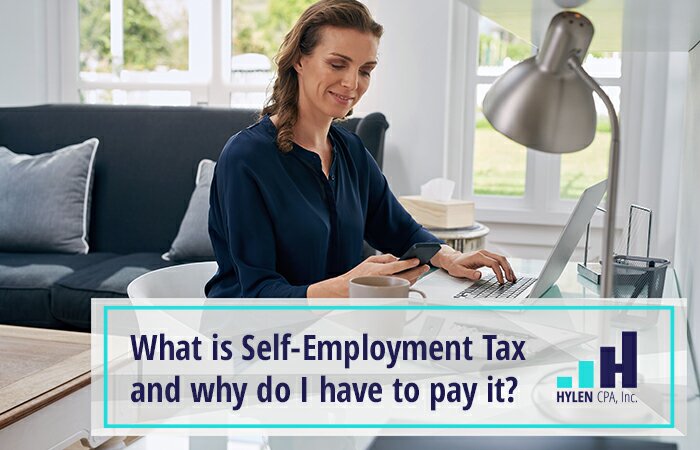Self-employment tax is Social Security and Medicare paid by self-employed individuals. When you are a sole proprietor (which includes the sole member of a single-member LLC), you get paid the complete amount you earn. No deductibles or taxes are taken out of your payments made to you by your clients. Throughout the year, you are required to pay quarterly estimates for the amount that approximates your tax liability. If you do not do so, you pay these taxes when you file a return during tax season along with a late payment penalty. To help lower your taxes, you can claim a federal deduction for half the self-employment tax you pay.
If you are a W2 employee, you pay for half of your social security and medicare and your employer pays the other half. When you are self-employed, there is no one to pay the “other half” other than you as the business owner. This “other half” of the social security and medicare that you are now required to pay is the very definition of “self-employment taxes.”
How do you know if you are self-employed?
If you are the owner of a business, or if you are in a business for yourself, then you are self-employed! This includes any side job or part-time business you might be involved with. Also, if you are given a 1099-MISC with an amount in box 7 “nonemployee compensation” you are self-employed even though you may not know it! You are also considered self-employed if you work as a freelancer, consultant or independent contractor, if you are a member of a partnership, own a limited liability company, or earn income through investments and rental properties. Any other activity where you intend to make a profit, have a regular income, or have efforts of being maintained is considered a business-like activity which requires self-employment taxes.
Why are you paying self-employment tax?
There are many reasons why you might be required to pay self-employment tax. If your self-employment earnings exceed $600, you need to pay self-employment taxes on your Form 1040. This amount of $600 or more would be reported to you in box 7 of form 1099-MISC as received from your client. The 1099-MISC will be sent to you each January by your client, as required.
Exemptions from self-employment tax
There are a few cases in which you do not have to file self-employment taxes, including prize money, research studies, and a lawsuit settlement. Before filing your taxes, make sure to check if your income is exempt from self-employment tax.
If you are the owner of an S-Corp or a C-Corp, you would also be exempt from paying self-employment taxes for that corporation. The requirement of being paid payroll up to your “market value” must first be met. Then any distributions you take from the business beyond that are free and clear of all self-employment taxes. Please contact us if you would like to convert your business to a corporation. We can take care of that for you!
Self-employment taxes don’t have to be difficult if they are handled correctly. If you need help to gain a further understanding or need a re-characterization of your business structure, please contact us at (781) 436-5810 or hylencpa.com/contact-us!


